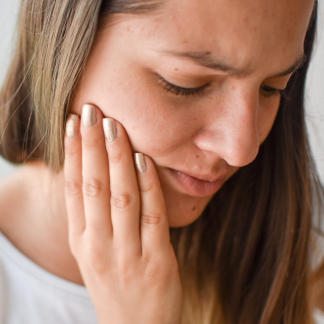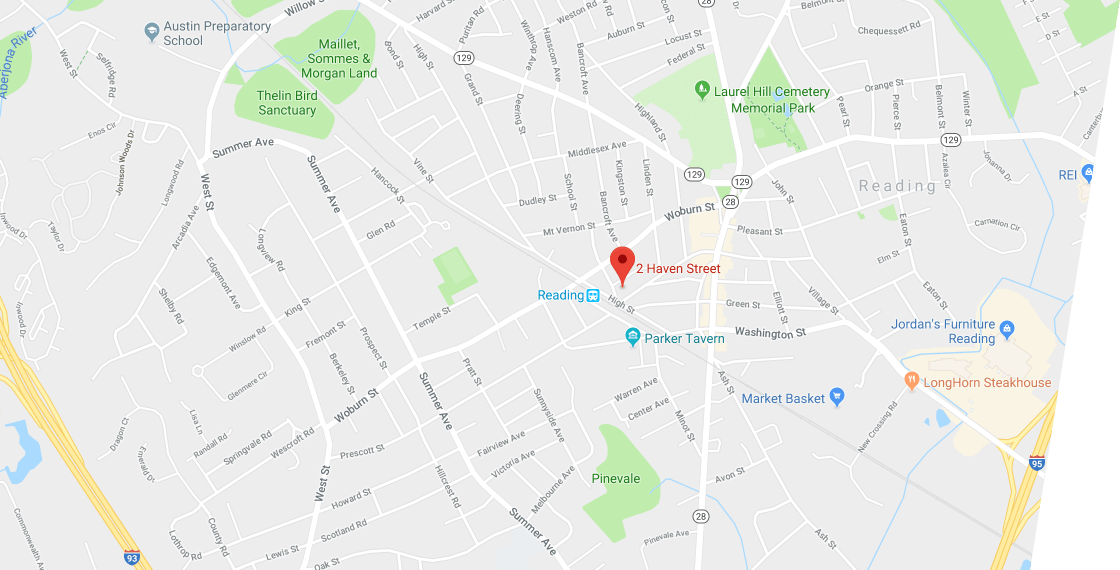TMJ/TMD Treatment Reading, MA
Over 30 million people in the United States have temporomandibular disorders (TMD), or problems with the jaw and the associated muscles in the face. These typically center around your temporomandibular joint, a joint that allows you to move your jaw from side to side for talking, chewing, and yawning by attaching to the temporal bones of your skull which sit in front of each ear. The focus on this joint has caused many people to use the term “TMJ” interchangeably to refer to TMD.
What is TMD/TMJ?
Research has shown that TMD typically involves one or more of these issues:
- Myofascial pain that causes discomfort in the muscles that control jaw function.
- Internal issues of the temporomandibular joint that involves a displaced disc, dislocated jaw, or injury to the condyle.
- Arthritis — a group of degenerative/ inflammatory joint disorders that can affect the temporomandibular joint.
Some people experience additional health problems that coexist with TMD/TMJ disorders, like fibromyalgia, chronic fatigue syndrome, or sleep disturbances.
Symptoms of TMD/TMJ
Common symptoms of TMD/TMJ include the following:
- Clicking or popping when you open or close your mouth or when you chew that may or may not be painful.
- Trouble chewing or an uncomfortable bite, as if the top and bottom teeth are not fitting together properly.
- Swelling on the side of your face.
- Jaws that “stick” in an open- or closed-mouth position.
- Trouble opening your mouth wide.
- Pain or tenderness in the jaw joint area, face, around the ear, or in the neck and shoulders upon speaking, chewing, or opening your mouth wide.
Other symptoms such as headaches, dizziness, neck aches, toothaches, ringing in your ears, hearing problems, earaches, and shoulder pain can also be indicative of TMD/TMJ.
Diagnosing TMD/TMJ
Since other issues such as arthritis, gum chewing, and tooth decay can cause problems that can mimic TMD/TMJ, your dentist will look at your health history and conduct a physical exam to pinpoint the cause of your jaw pain.
They will check the temporomandibular joint for tenderness and listen for clicks and pops and make sure your jaw works as it is supposed to. Finally, they will check your bite and facial muscles. Most likely, you will receive full face X-rays that allow your dentist to see your jaw joints, jaws, and teeth to rule out the possibility of other issues. They may want to also do magnetic resonance imaging (MRI) or computer tomography (CT) tests to check the position of the TMJ disc and zero in on the bony details of the jaw joint. You may be asked to see an oral and maxillofacial surgeon and/or an orthodontist to ensure all your joints, teeth, and muscles are coordinating as they should.
The Importance of TMD/TMJ Treatment
Treatment for TMD/TMJ often includes a number of options, including things you can do on your own:
- Stress management and lifestyle changes
- Anti-anxiety medications to reduce stress
- NSAIDS
- Physical therapy
- A soft food diet
- Heat and cold therapy
- A dental splint or night guard
- Orthognathic surgery
- Other surgeries
There are so many therapies for TMD/TMJ that you should seek the opinion of your dental professional to ensure you get the right therapy for your specific jaw issue. Seeking treatment as soon as possible for TMD/TMJ is critical, however, to prevent more severe issues down the line including greater discomfort, the risk of dental damage, and the possibility of developing ear issues such as tinnitus.
If you think you may have TMD/TMJ, check with your dental professional as soon as possible or talk it over with Dr. Spyrou by contacting our office.




